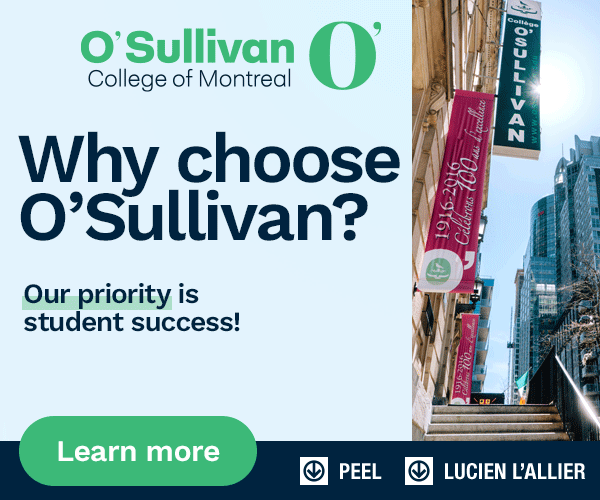A revolution in teaching computer science is happening at York University's Markham Campus.
The Lassonde School of Engineering's Computer Science and Software Development Faculty and York's Faculty of Science have joined forces to create a better way to teach first-year computer science.
Faculty have taken a 12-week course and split into two six-week segments, Coding Through Biology and Coding Through Chemistry. Rather than learning coding in isolation, this approach enables students to solve real-world problems in the sciences using computer skills which creates an interdisciplinary learning experience.
Meiying Qin, an assistant professor in the Department of Electrical Engineering and Computer Science at Lassonde, is leading the charge. Larry Zhang, assistant professor and undergraduate program director in Markham Campus's Computer Science for Software Development program, and Jonaton Schroeder, assistant professor in Lassonde's Electrical Engineering and Computer Science department, developed the course materials.
Jade Atallah, assistant professor of biology, and Hovig Kouyoumdjian, associate professor of chemistry, both in the Faculty of Science, were also instrumental in developing the course and teaching the science-related course material.
In Coding Through Biology, students might analyze DNA sequences, model protein structures or explore genetic mutations using computational methods. In Coding Through Chemistry, students might write code to simulate chemical reactions, molecular interactions or pharmacological processes.
The point is not to learn biology and chemistry, says Qin, but rather to learn to code via real-world examples. Students understand how the concepts they are studying apply to actual problems and situations, and by applying programming skills to real-world scenarios they can better understand the practical applications of coding.
It's no surprise the course is taught at the Markham Campus in its Computer Science for Software Development program as the campus emphasizes experiential and project-based learning, Zhang says. This new approach helps students understand the relevance of coding beyond the classroom - a key factor in improving engagement, retention and long-term learning outcomes.
When students struggle in higher level courses, often the result of "fragile learning," it is because they do not have a strong foundation of knowledge, Zhang says. Changes to these first-year courses aim to fix that by giving students a solid foundational base.
The course flips the usual course structure by having students learn concepts independently before class through videos and exercises, then spend class time in discussion and problem solving, Qin says.
Another innovation is the use of competency-based grading. This evaluation framework rewards students for mastering specific learning outcomes. Students receive feedback and are given more than one attempt to complete exercises to show they understand the material. The system aims to motivate students to stay on track and gives them more chances to succeed.
The number of innovations in this course - pre-learning concepts, the science applications, hands-on problem solving, competency-based grading - make this first-year computer science course unique, Qin says.
"It looks promising as students are doing well because there are a lot of innovations here. It's very different from a traditional first-year computer science course," she says. "I think this is quite unique."
Zhang says there's been a remarkable improvement in assessed student performance in the revamped course. He credits the "spiral structure" of the course, that students learn material in the first six weeks when they are solving biology problems, then loop back (forming a spiral) and learn it again while solving chemistry problems. The spiral reinforces the knowledge in a different context which solidifies it for students.
The innovations in these first-year computer science courses are good examples of what the Markham Campus is working toward.
"It's one of the signature curriculum innovations Markham (Campus) is trying to do," Zhang says.
He refers to the slogan for the campus: The Future of Learning Has Arrived. "It sounds like hype, but for us, it's not hype at all. That's actually what we're doing, the way we design our courses, our curriculum. We really try to think into the future It's very exciting."
This story was originally featured in YFile, York University's community newsletter.












